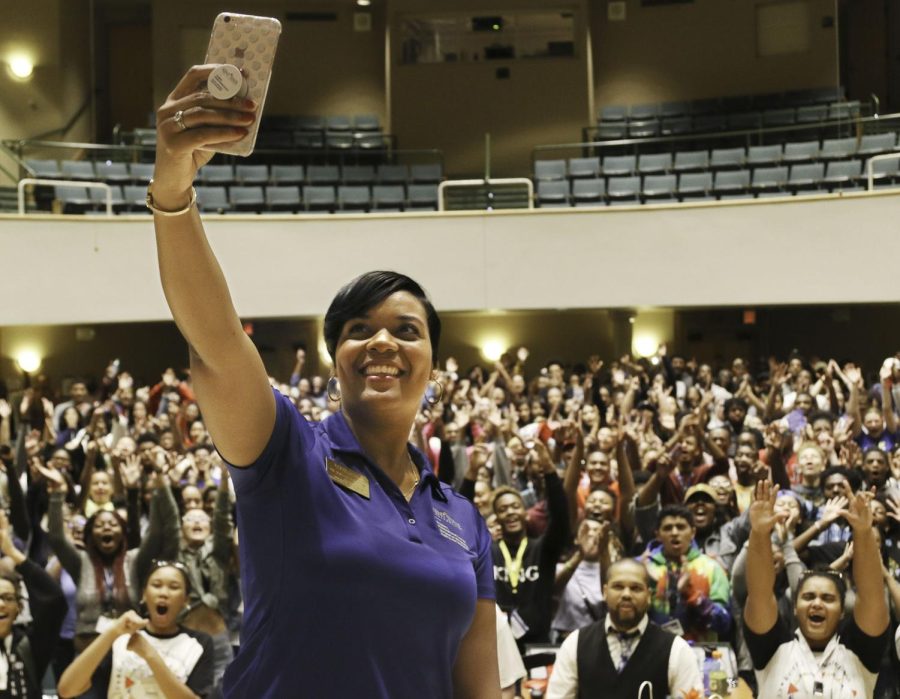Kupita Transiciones eases underrepresented students into school year
Talea Drummer, the director of the Student Multicultural Center, takes a video on her cellphone during the Kupita Transitiones closing ceremony Thursday, Aug. 24, 2017.
September 10, 2017
After just four days, the Kupita Transiciones orientation gave freshmen African American, Latino American, Native American and multiracial students an opportunity to acclimate to Kent’s campus.
On Aug. 21, 282 freshmen arrived for early campus move-in to meet other students and attend faculty-led programs.
Talea Drummer, the director of the Student Multicultural Center and the chair of the committee in charge of K/T said this year marked the highest attendance rate.
“Kupita, in a nutshell, is a transition program for underrepresented students who are transitioning into college,” said Donovan Vaughn, a junior managerial marketing major and K/T alumnus.
Drummer said K/T helps students build a family and find a home at Kent State.
“It helps them to get cultural affirmation on who they are,” Drummer said.
Unlike Destination Kent State, only underrepresented students can choose to sign up for K/T.
During the orientation, student mentors, guides, faculty and staff offer advice on how to succeed in college.
Freshmen participants attend programs on topics ranging from financial aid resources to breaking stereotypes to professional networking.
Drummer described K/T events as “beautiful balance” between giving the students information, complementing the events of Welcome Weekend and offering a cultural education.
In addition to encouraging students to adjust to campus and college responsibilities, K/T also gives participants the opportunity to build relationships with their peers.
Vaughn, who met his roommate at K/T his freshman year and still lives with him now, said he built his friend group at K/T.
“It’s a pretty solid program that makes that lifelong connection for a lot of people,” he said.
Devon Childress, a sophomore digital sciences major and K/T alumnus who returned as a mentor, said that K/T helped him break out of his shell.
“I’ve shared personal things that I’ve never shared before,” Childress said. “I‘m usually the laid-back person, letting people share their opinions (and) listen. I don’t usually jump out with my ideas.”
The program will continue beyond the late August orientation into the school year. As a mentor, Childress must meet with his five freshmen mentees twice each semester. At these meetings, he monitors their academic progress and level of comfort on campus.
“I like being a mentor and helping the others out because I see myself in them,” Childress said.
Drummer said trends in the last three to four years of research show K/T attendees graduate at a higher rate than other underrepresented students who do not.
“What we think is that we’re starting this foundation to remind everyone to pull each other together,” Drummer said.
Vaughn and Drummer have both witnessed K/T participants build connections over the course of the four-day orientation.
Drummer said students approached her to thank her for making them feel like they belong.
“That’s better than what any data point can give me,” she said.
Carrie George is the diversity reporter. Contact her at [email protected].












